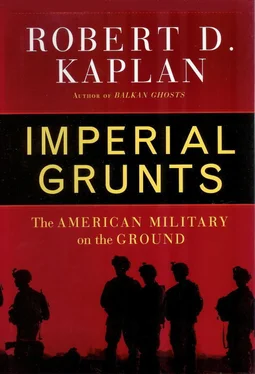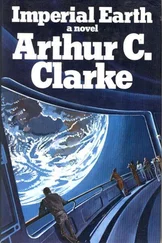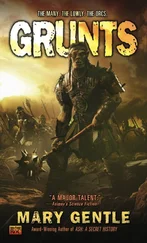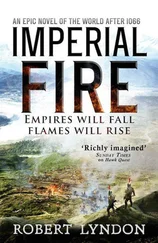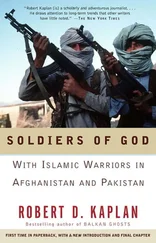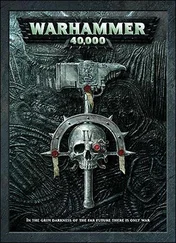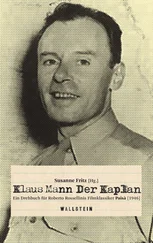The lesson was clear: The more subtle and cautious its application of power, the greater would be America’s sustaining impact. The United States could hold sway over the world only quietly, off camera, so to speak. The focus of the media klieg light on Al-Fallujah, following my departure there, was central to the decision—made at the highest levels of the U.S. government—to call a cease-fire that would end the Marine assault. This happened just as the Marines, strengthened by the arrival of a whole new battalion, may have been about to overrun the insurgents.
To be sure, the decision to invest Al-Fallujah and then pull out just as victory was within reach demonstrated both the fecklessness and incoherence of the Bush administration. While a case can be made for either launching a full-scale marine assault or continuing the previous policy of individual surgical strikes, a case cannot be made for launching a full-scale assault only to reverse it because of political pressures that were easily foreseeable in the first place. 27But in larger historical terms the Al-Fallujah drama also demonstrated the weakness of nation-states against the thundering new forces of a global media. Take Al-Jazeera, the independent, Qatar-based network whose characterizations of the fighting added to the political pressure on the White House to halt the offensive. Al-Jazeera was itself an example of the very political freedom that the U.S. sought to encourage in the Arab world. The more we succeeded in our quest for open societies, the more those open societies would seek to restrain us—and consequently the more quiet and devious our military behavior would have to be.
The American Empire of the early twenty-first century depended upon a tissue of intangibles that was threatened, rather than invigorated, by the naked exercise of power. 28Or as Army Col. Tom Wilhelm had told me in Mongolia, an empire of behind-the-scenes relationships was all that was possible anymore.
———
I left the soda factory in Al-Fallujah just as the cease-fire was announced and more journalists began to arrive. From St. Mere I hitched a ride at midnight on a C-46 Sea Knight helicopter to an air base farther west, only to learn that military flights from there to Kuwait had stopped weeks before. There was little food and only a soiled cot on a concrete floor to sleep on. Twenty-four hours later, I caught another helicopter ride to another base deeper into Iraq’s western desert, where an Air Force C-130 bound for Kuwait was due to stop over the next day. I spent the night in an open tent. It was freezing and there was a dust storm. The Air Force plane was a no-show. But a civilian cargo plane arrived, en route to Sharjah in the United Arab Emirates. It was an Antonov with a Russian crew and they agreed to take me. They smoked even more than the marines did, but the strong tea, black bread, and sausages that they offered tasted good after weeks of MREs and Gatorade. One of the hatch doors didn’t seal properly upon closing, and they stuffed it with oily rags. “No problem,” one of the Russians said dismissively as the plane took off.
The plane landed at the far end of Sharjah airport, reserved for cargo planes. I said goodbye to the crew and made my way in the dark to the civilian arrivals terminal. I hadn’t bathed properly for a long time, and my clothes and backpack were layered in dust. Suddenly, I was under bright lights amid noisy crowds of prosperous Europeans on holiday, clad in fine clothes and jewelry and smelling of expensive perfumes and colognes. It was a half-hour taxi ride to a luxury hotel in Dubai. In the lobby, on the way to my room, I noticed a newsstand. The front pages were all about Al-Fallujah. I felt like a person at the center of a scandal that everyone was reading about, in which even the most accurate, balanced accounts were unconnected to what I had actually experienced and the marines I had experienced it all with. I felt deeply alienated. After I ate and showered and scrubbed my backpack, I didn’t want to talk to anyone. All I wanted to do was write.
There was still so much I had to see. Places such as Indonesia, Korea, and even an area command or two still beckoned, not to mention other armed services. I had only begun my journey. I remember what one of the Marine generals visiting from Washington had told me before I left Al-Fallujah:
“Go home and rest a few weeks in the world of porcelain shitters. Then come back for more.”
EPILOGUE
THE INTERIOR CONTINENT
On late winter nights a lively group of young men and women gather round the tables at the High Noon Saloon and Brewery in Leavenworth, Kansas, escaping from the snowdrifts and ransacking prairie wind. Green Berets, Army FAOs (foreign area officers), and others spending their required year or two of study at nearby Fort Leavenworth talk loud above the karaoke music in the adjoining room. They swap stories about intrepid French tourists in Cambodia, tensions on the Saudi-Qatari border, the Maoist rebellion in Nepal, training missions that might one day materialize in Libya, getting sick in Afghanistan, chewing ghat in Somalia, and the awful Korean winters—worse than those in Kansas. I recall a young married couple, both Army majors, he a graduate of the Citadel, she of West Point, both from service families—her mother had been a nurse in Vietnam. They would be moving to European Command in Stuttgart, they told me. They could help arrange travel in their AOR, which included the Sahel countries of Africa.
The outside streets, lined with brick warehouses, are named for the North American Indian tribes with which the U.S. Army negotiated truces—Cheyenne, Pawnee, Seneca, Dakota, Choctaw… Two hundred years earlier Lewis and Clark camped nearby. From here the first white settlers moved into Indian Country. Fort Leavenworth, where the tallgrass prairie meets the short grass of the Great Plains, was the starting point for Manifest Destiny.
But nobody at the High Noon Saloon talks about “Are we an empire or not?” Rather, people talk about which indigenous armies are better than others, how successful the Marine training mission in the Caucasus was, tensions between the Army and the Air Force in East Asia, and so on.
Here, as at Fort Bragg, Camp Lejeune, and Camp Pendleton, places where people wear BDUs rather than dress greens, the talk is about application rather than conceptualization. Here you find out what is really going on in the world, where a traveler should be headed next, and who could help him get there. Here, in the interior continent, western Iraq seems closer than western Kansas during the Indian wars.
AUTHOR’S NOTE AND ACKNOWLEDGMENTS
This is the first volume of a series of books about traveling with the American military. Less than a quarter of the material in this volume has been excerpted in The Atlantic Monthly magazine, and never more than half of any individual chapter.
My exposure to the American military began in the early 1990s at the School of Advanced Military Studies at Fort Leavenworth, Kansas. I went there at the suggestion of Army Col. (now Lt. Gen.) Jim Dubik, Col. (now retired Lt. Gen.) Randy House, and Army Chief of Staff Gen. Gordon Sullivan. At Fort Leavenworth I formed a friendship with Professor Robert Berlin. A year did not pass when I did not return there. The contacts I made at Fort Leavenworth would lead me eventually to this project.
I have been lucky with my long-term relationships, without which this undertaking would not have been possible. Literary agents Carl D. Brandt and Marianne Merola have been with me from the germination of this project, as they have for all my others for the past seventeen years. Random House has been the hardcover publisher of the last seven of my eleven books. I will always be grateful to Jason Epstein for beginning that association, just as I am grateful to William Whitworth for bringing me to The Atlantic Monthly in 1985.
Читать дальше
